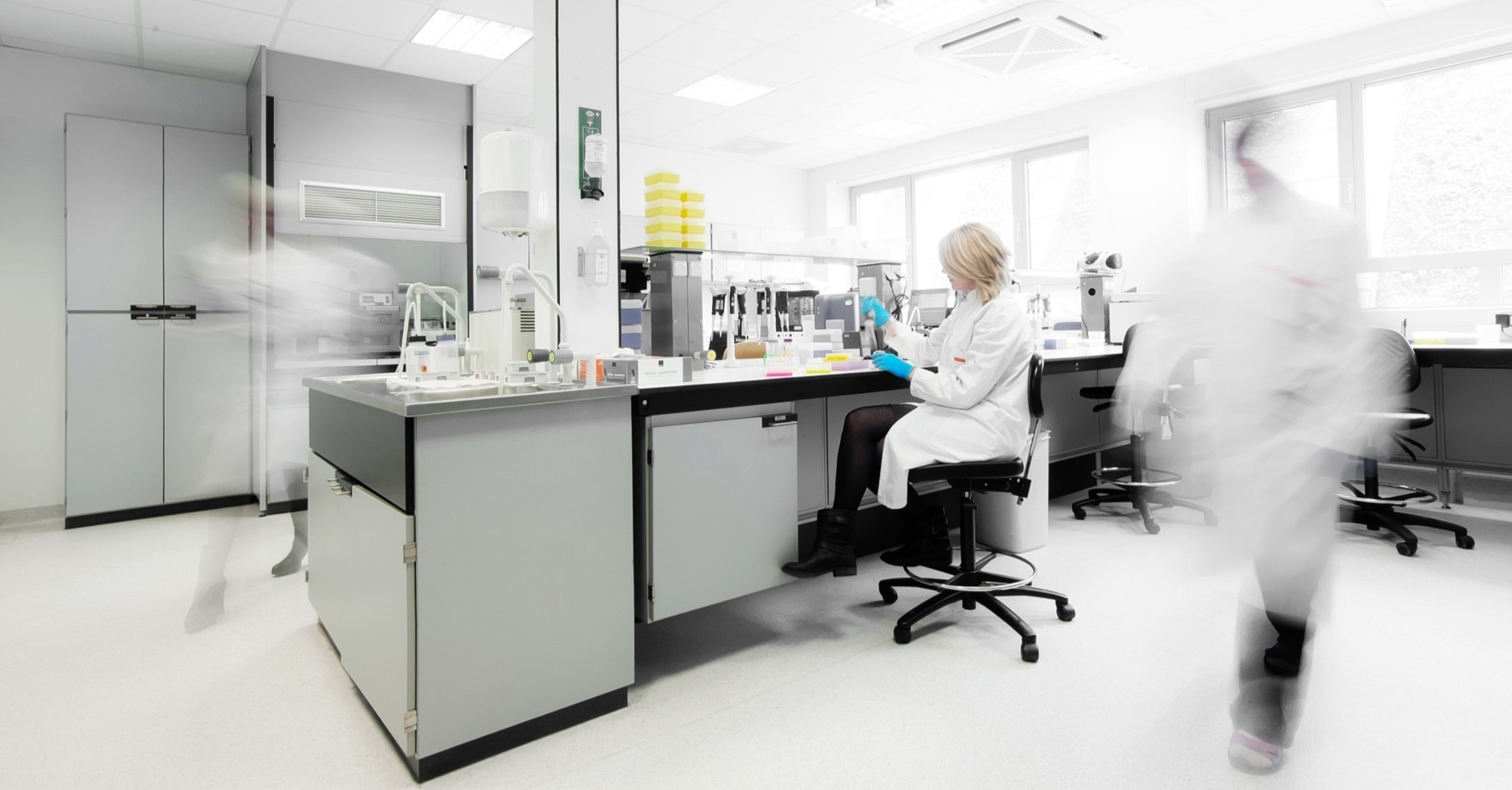Prenatal genetic testing
Prenatal tests, in other words tests before the birth, make it possible to detect in a targeted manner mutations in the DNA or abnormalities in the chromosomes of your foetus.
Such tests take priority in the laboratories over postnatal tests because of their urgent nature. In the case of serious abnormalities you can of course opt to have the pregnancy terminated or to have extra monitoring during the pregnancy and after the birth.
Continue reading below the photo.

Possible tests?
The Centre for Medical Genetics (CMG) carries out the tests on material that can be collected in different ways:
- During a non-invasive test on the blood of the mother with foetal DNA:
- NIP test (NIPT)
- Combined test
- During an invasive test on:
- Placental tissue via a chorionic villus test
- Amniotic fluid via amniocentesis
- Umbilical cord blood via umbilical cord puncture
- After a miscarriage on:
As a check the CMG in most cases carries out a test at the same time on a blood sample of the pregnant woman and/or (possibly) on a sample from her partner
For whom?
Prenatal diagnostics are available for any pregnant woman who asks for them but for some patients the indication for them is stronger:
- For couples at an increased risk of a hereditary condition
- For pregnant women over 35 years of age
- Also couples who have become pregnant through medically-assisted reproduction (MAR) are often advised to have a prenatal diagnosis carried out